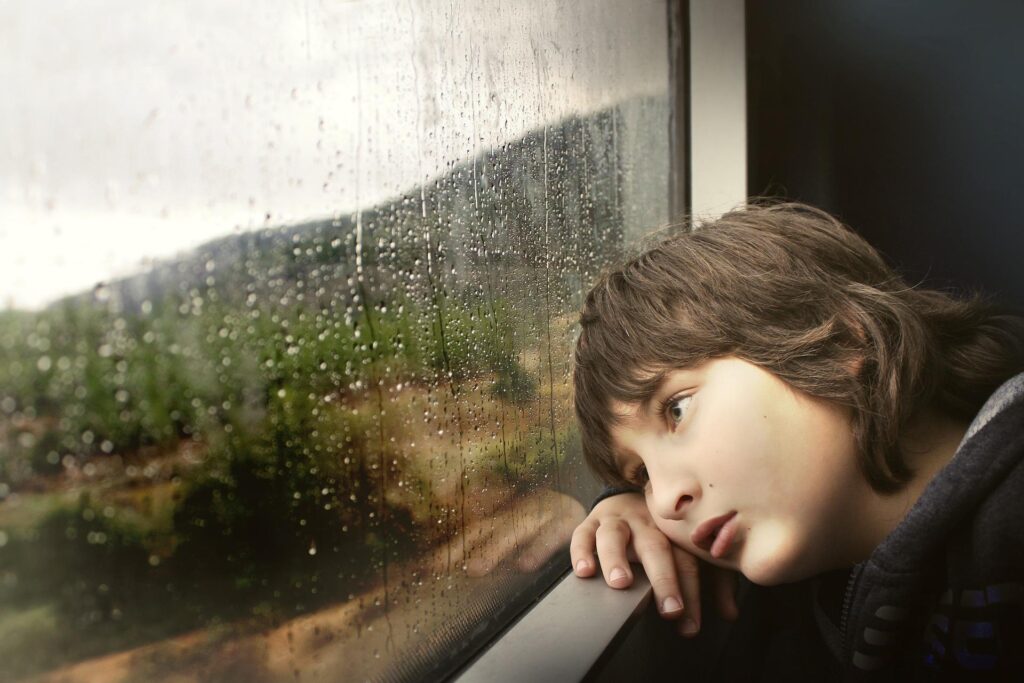In part 2 of our Time to Talk Day series, we are continuing to look at how to talk to children about mental health.
Each year Time to Talk Day encourages adults to start conversations about mental health with friends, family and co-workers. This year, The Spark is focusing on the tricky issue of how to talk to young children about mental health.
Catch up with part 1 of our Time to Talk Day series ‘Talking to kids about emotions’.
Emotional injuries can be treated just like physical ones

Much of the stigma around mental health is the result of the subject, and how we get help, being rarely discussed. Up until very recently, this has meant that conversations around mental health and the ways to deal with emotional issues have been swept under the carpet. This is especially in terms of how to talk to young children about mental health.
By contrast, if a child grazes their knee or gets an ear infection, their treatment is both highly visible and openly discussed. Going to the doctor, taking medicine, putting on a plaster or getting a good old kiss and a cuddle from mum or dad are all ways children learn to deal with cuts, colds and bumps.
Parents, therefore, should not shy away from doing the same for emotional issues. For example, if a child is upset or ‘emotionally hurt’, encourage them to hold a comfort object like a blanket or favourite cuddly toy. This can help them calm down and then be able to talk about their emotions.
Similarly, creating a comfort box for them is a good way of helping them to regulate their emotions if a single comforting object is not enough. You can read about how to make a comfort box in this article.
For kids, big emotional issues start out as small emotional issues. Don’t ignore them

An adult might consider a falling out between kids as a minor issue. But take a moment to consider it from your own child’s perspective. For them, falling out with their best friend or a classmate can feel like the end of the world.
Though it might seem obvious, children do not have the experience or emotional maturity that (most!) adults possess. Therefore, they may not know how to regulate their emotions or deal with the situation, making it all the more important that parents take the lead by regularly asking how they are feeling and if they need help.
Open-ended questions are a good way to start the conversation. They can avoid ‘yes’, ‘no’ or ‘fine’ responses that often close down opportunities to dig a bit deeper. Relaying your own experiences of similar issues – from your time at school or more recently – is also an effective way of talking to young children about mental health.
When talking to young children about mental health, watch what you say
Nutter, psycho, crazy, mad – these are all words that both trivialise and stigmatise mental health. An individual with a genuine mental health condition can be described as being “a nutter” but so too can toddlers experiencing a very normal, developmental tantrum.
How adults talk about emotional and mental wellbeing in front of their children will shape their views, both for good and bad. Therefore, what some adults might consider harmless banter has the ability to stigmatise mental health issues for a whole new generation.
For example, if a child regularly hears their parent use such stigmatising language, how likely are they to approach them for support with emotional issues? Will they fear being labelled? Conversely, how difficult will it be for the parent to open up a conversation with their child about mental health?
It is therefore important that we all watch what we say when talking to young children about mental health.
Counselling for children and young people
Sometimes children need a bit of extra help in dealing with difficult emotions or big life transitions like going to a new school. As the largest provider of counselling for children and young people in Scotland, The Spark is available to help children and their parents.
The Spark’s professional counsellors are available to work individually with children and/or their parents. They regularly help with issues like anxiety, emotional regulations and trauma from our network of regional counselling centres.
To find out more, speak to one of our advisors on 0808 802 2088 or contact us online. You can read more about our child counselling and youth counselling services.

